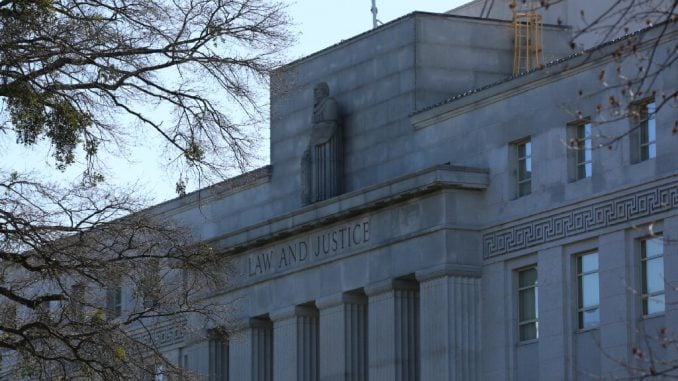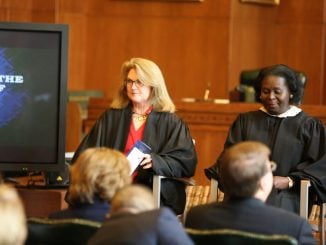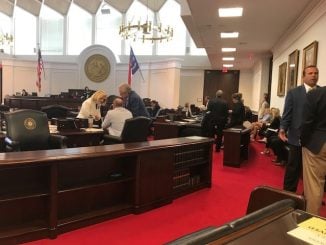
Serving as a judge is challenging. We know from experience. Among the three of us, we have more than seventy years of experience on the bench. Collectively, we’ve served at every level of our State’s judiciary. Each of us has served as Chief Justice of the Supreme Court of North Carolina. We’re all too familiar with the challenges our judges face every day—whether resolving tough legal questions or navigating thorny ethical dilemmas.
Sound judicial ethics are critical to our system of justice. They promote the institutional legitimacy of our courts and bolster the rule of law. Judges must exhibit fairness and maintain impartiality when deciding cases. They must apply neutral principles of law to resolve the legal questions before them. In short, we all want to have confidence that the women and men wearing black robes are faithfully applying the law.
But questions of judicial ethics can be—and often are—complicated and nuanced. The Supreme Court of North Carolina faces an especially complicated question in NAACP v. Moore: who gets to decide the answer to these questions? Who—if anyone—has the power to disqualify democratically elected justices from carrying out their constitutional duties?
It might surprise you to learn that North Carolina law does not provide a definitive answer. Our constitution is silent on the issue of disqualification and recusal. A statute (G.S. 15A-1223) tells us that judges must recuse themselves under some circumstances in criminal cases. But there is no such statute for civil cases like the one before the Supreme Court. So, what should the Court do?
There is no single “correct” process for courts to adopt when deciding questions of recusal and disqualification. When faced with such questions, judges must balance their duty to hear and decide cases—their core duty—with the concomitant duty to recuse. Courts in other states handle recusal and disqualification in a variety of ways. Each process has its virtues and its flaws. The Supreme Court of North Carolina has asked the parties in NAACP v. Moore for guidance on how to approach this delicate question, and we trust that the able advocates on both sides of the case will sharpen and clarify the issues at stake.
As former and retired jurists, it is not our place to tell the Court what it should do in this instance. There may be facts and circumstances involved of which we are not aware. And we express no opinion on whether the affected Justices should recuse or be disqualified from hearing this specific case.
But what we can do is offer our perspective on how the Court has historically handled this issue and why. After all, our collective tenure on the high court spans from 1974 to 2019. It’s fair to say that recusal came up more than a few times in those forty-five years.
In our collective experience on the Court, the Court deferred to the judgment of the individual Justice or Justices being asked to recuse. Without exception, recusal was not considered a matter for the whole Court to resolve. The reason for this policy is simple: only the individual Justice can examine her or his conscience. Only the individual Justice knows whether she or he can overcome any bias and render a fair and objective decision.
Any approach to recusal and disqualification is bound to have its shortcomings. This approach to recusal and disqualification—an “honor system” approach—assumes that our affected colleagues will act in good faith. It assumes that our colleagues will base their decisions on the best interests of the parties, the Court, and the State. It requires trust, respect, and collegiality among members of our Supreme Court.
Our confidence in this approach remains strong, in part because our Court was hardly alone in adopting it. In fact, our nation’s highest Court, the Supreme Court of the United States, employs a similar system of individual accountability for issues of recusal. When confronted with a recusal question, each justice balances the duty to execute the office against the parallel duty to step aside, and that justice renders an individual decision.
Only the seven members of our Supreme Court can determine whether this should remain the policy on recusal and disqualification. We trust our successors to resolve this difficult question in a way that promotes fundamental fairness, protects the integrity of our judiciary, and, above all else, preserves the rule of law. North Carolinians deserve nothing less.
This editorial was written by Hon. James G. Exum Jr., Chief Justice, 1986-1994, Associate Justice, 1974-1986; Hon. Burley B. Mitchell Jr., Chief Justice, 1995-1999; Associate Justice, 1982-1995; and Hon. Mark D. Martin, Chief Justice, 2014-2019, Associate Justice, 1999-2014




